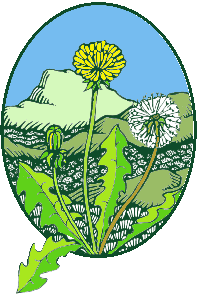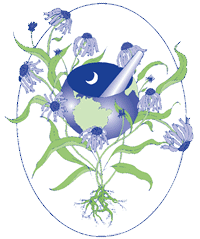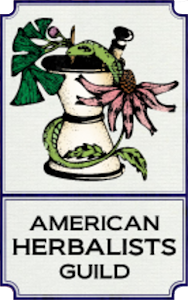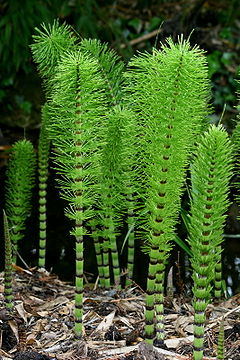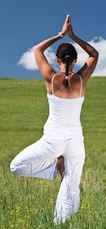| |||||||||||||||||||||
Tuesday, May 22, 2012
Permaculture workshops May 28-June 1
Saturday, May 12, 2012
Kate Gilday Speaks in Halifax, May 26-27!!
 |
| Herbalist, Kate Gilday |
- AN INTEGRATIVE APROACH TO LYME DISEASE
Saturday, May 26 and - SAFE HERBAL SUPPORT FOR THOSE RECEIVING RADIATION OR CHEMOTHERAPY
Sunday, May 27!!
For all of the details check out http://herbalns.org/events.htm
A bit about Kate:
Kate Gilday is a clinical herbalist, flower essence practitioner and creator, Ayurvedic lifestyle consultant and herbal teacher. She is the founder of Woodland Essence Teaching Center, a forest botanicals and flower essence company and workshop center that she guides with her husband Don Babineau. Kate is well-loved for the clarity and clinical relevance gleaned from decades of experience in her teachings. She is a member of Collaborative Healing, a group of local practitioners who address health care through a unique integrative network, educating the community and combining conventional medicine with expert complementary care. Kate is a creative medicine maker, having developed several lines of flower essences, as well as herbal compounds, salves, and cremes. Kate is one of North America’s leading practioners in the holistic treatment of Lyme disease. A renowned teacher at conferences, she brings her love of the wild places, song and healing to the workshops she presents.
Labels:
events,
hans,
Kate Gilday,
speaker
Wednesday, May 9, 2012
Tick Info
Timely information on ticks shared by Medical Herbalist, Jeanette Porrier, Blockhouse, NS.
ERIN ANDERSSEN
From Monday's Globe and Mail
Published Sunday, May. 06, 2012 4:00PM EDT
Meet the Ixodes Scapularis (otherwise known as the disease-carrying tick that could ruin your summer). Thanks to warmer temperatures, this ugly little bug has become a most unwelcome U.S. import, moving further north with each passing year, and flourishing in some of the most populated parts of Canada. (Complain about those bitterly cold Saskatchewan winters if you like, but prairie campers are less likely to be tweezing the hard-shelled bloodsuckers off their bodies.)
Scientists say that increasing populations of the black-legged tick means a certain rise in the risk of Lyme disease, a serious bacterial illness that, if left untreated, can impact the nervous system and heart. But before you decide to spend your holidays camping out in an air-conditioned condo, here's how to take back the forest (or at least walk the wooded path with your pants tucked into your socks.)
Know thine enemy: Black-legged ticks are arachnids (related to spiders and scorpions) with hard oval bodies in shades of brown, and short legs. Depending on their life cycle, they come as small as a poppy seed, though they can swell to twice their size the longer they feed on an animal – humans included.
Thank you, climate change: Ticks travelled up from the United States via deer and migratory birds, and the first populations began to grow along the border, from Nova Scotia to southern Manitoba. Warmer temperatures are the primary reason why the numbers have exploded, according to a recent Canadian study. In 2010, about 18 per cent of inhabited parts of eastern Canada had ticks – by 2020, that's expected to rise to 80 per cent. (A West Coast version of the black-legged tick, Ixodes pacificus, which also carries Lyme disease, is making its own steady advance into British Columbia.) "If we have conditions in the future where temperatures are warmer than they are now, that's going to speed the spread of ticks in new areas," says Patrick Leighton, an assistant professor of Veterinary Medicine at the University of Montreal who co-authored a recent study tracking the tick invasion. "The public health issues raised with that will be confronting us more quickly."
How they make us sick: Ticks transfer a bacteria called Borrelia burgdorferi, which causes Lyme disease. It's been around for a while: This week, Italian doctors reported finding evidence of Lyme disease in a blood sample from a 5,000-year-old "iceman." In the United States, 30,000 cases of the illness are reported annually, but in Canada, where doctors have been reporting incidences only since 2009, just 150 cases have been documented each year (of which half were contracted outside the country). But Nicholas Ogden, a research scientist and Lyme disease expert with the Public Health Agency of Canada, says that Canadian numbers are underestimated and expected to rise. The illness typically (though not always) begins with an bull's-eye rash around the bite area, and flu-like symptoms. If it is not quickly treated with antibiotics, it may progress to joint pain, extreme fatigue, Bell's Palsy, meningitis or heart palpitations.A tick has to be attached for about 24 hours to spread the bacteria. The risk of contracting Lyme disease is higher in the late spring and summer, when ticks "wake up" from their winter dormancy, and barbecues and nature walks make us more likely to encounter them.
What to do if you get bitten: Don't yank a tick off, like a mosquito. The public-health agency recommends using tweezers to gently pull the tick away at the closest part of the skin. If it's possible the tick has been attached for more than 24 hours, and especially if you are in an area with a reported incidence of Lyme, contact your doctor. Federal health guidelines say that Lyme disease can be diagnosed clinically (without a lab test), and conclusively if the rash appears (so take a picture), and then treated promptly with antibiotics. However, symptoms may not develop immediately.
The controversy: The sooner you get treated, the better the outcome, but since the disease is still making inroads into Canada, not all doctors are familiar with it. The general symptoms of Lyme disease fit many other illness, so patients without evidence of a bite or who only start feeling sick weeks later, are often misdiagnosed. The testing for Lyme disease, like many illnesses, isn't perfect – false positives and negatives are common, and there is an ongoing debate about the quality of testing that has led some Canadians to pay for further lab work in the United States (or even seeking treatment there). A small portion of patients experience debilitating symptoms long after their initial antibiotic treatment. While some physicians, who believe that leftover but well-hidden bacteria may be causing the illness to flare again, advocate prescribing long-term antibiotics, this treatment is challenged in the mainstream medical community. "All the science has not been done, that's the problem," says Pat Smith, the president of the U.S. Lyme Disease Association, which this week launched a billboard in Time Square to raise awareness and research dollars: "All over the world … Throughout the body. Chronic Lyme Disease – Are you next?"
Tick Check - a game the whole family can play: Prevention is the best defence. That means, for example, cutting long grass around walking trails in wooded areas (many parks now post warning signs for hikers), keep your lawn short, and checking your pets for ticks they might bring into the house. If you walk in tick-infested areas, cover as much skin as possible and avoid wearing sandals. Regularly check every member of your family for the tiny bugs, especially under clothes, and hard to see places such as behind the knees. (Usually, you can feel them by rubbing your hands along your skin.) But don't panic: With proper prevention "we are not entirely helpless in the face of this emerging risk," says Dr. Ogden, pointing out that, "Staying home to watch the tely and eat chips is not a healthy option compared to pursuing activity in the great outdoors."
Labels:
ticks
DooGooD In The World
 |
| The amazing art of Stephanie Pui-Mun Law |
Click here to check it out!
She is posting weekly simple challenges aimed at doing nice things for strangers. We are each responsible for making our world the kind of place we want it to be....
Labels:
blog,
pass it forward
Friday, May 4, 2012
Find Your Horsetail Patch Now!
Family: N.O. Equisetaceae
Synonyms: Shave-grass. Bottle-brush. Paddock-pipes. Dutch Rushes. Pewterwort.
Horsetail is an ancient little plant that is both diuretic (helps eliminate fluid) and astringent (helps tone tissue). Horsetail is sprouting all over my yard and is now starting to turn green! It is best to harvest for making tea when it is a young green plant. As it matures, its silica content rises making it better for external uses. Now is a good time to look for a patch of it for your future harvest.
Synonyms: Shave-grass. Bottle-brush. Paddock-pipes. Dutch Rushes. Pewterwort.
Horsetail is an ancient little plant that is both diuretic (helps eliminate fluid) and astringent (helps tone tissue). Horsetail is sprouting all over my yard and is now starting to turn green! It is best to harvest for making tea when it is a young green plant. As it matures, its silica content rises making it better for external uses. Now is a good time to look for a patch of it for your future harvest.
|
Green blessings,
Val
-- Original posting: April 25, 2010
-- Original posting: April 25, 2010
Labels:
herb harvest,
horsetail
Thursday, May 3, 2012
Wednesday, May 2, 2012
Upcoming Herbal and Natural Healing Classes
FROM STEVEN HORNE
It's time for May Flowers! (and May herbal classes, too)
It's time for May Flowers! (and May herbal classes, too)
Here's a list of current classes and webinars you might be
interested in.
Emergency Preparedness for Herbalists
Free Webinar: May 10, 6:30 PM MT
I've been wanting to do a webinar on emergency preparedness
for some time and have been collecting information and
supplies to put it together. I'm ready to share what I know
about this subject in this free webinar. We will cover the
emergency survival priority list, the skills you should acquire
and the supplies you should store to be prepared for natural
or manmade disasters. Click the following link to register:
https://www2.gotomeeting.com/register/790467866
Allergies, Hypersensitivities, and Their
Implications Beyond Mucous Membranes
American Herbalist Guild Webinar with Guido Masé
Hosted by Steven Horne
May 9, 2012, 7:00 PM ET, 6:00 CT, 5:00 MT, 4:00 PT
Spring has arrived for many of us across the country.
The opening of catkins and flowers has brought pollens
that can contribute to airway irritation in those who
suffer from seasonal allergies. Learn how to address these
issues from a comprehensive perspective; by focusing on
the state of mucous membranes as well as systemic health
based on balanced immune, digestive, and liver function,
herbal medicine has much to offer. In this class we will
discuss the physiologic and energetic principles involved,
key herbs from the materia medica, and sample formulas.
The instructor, Guido Masé, RH (AHG) is a clinical herbalist,
herbal educator, and garden steward specializing in holistic
Western herbalism, though his approach is eclectic and
draws upon many influences.
Register at:
https://www2.gotomeeting.com/register/414357850
Keeping Your Heart and Brain Healthy
Live Class: Wednesday, May 16, 7:00 PM, Wheat Ridge, CO
Let's Set the Record Straight...
- Most of the information we've been
given about preventing heart disease is wrong! - Cholesterol and fats aren't the real cause of
heart disease and the lower your cholesterol
the greater your risk of cancer. - Statin drugs reduce your risk of heart attack,
but increase your risk of stroke and your overall
risk of dying early. - A lack of the right kinds of fats (and fat soluble
vitamins) contributes to both heart disease and memory loss.
- Natural ways to prevent heart disease, reduce blood
pressure and improve your cardiovascular system
without the side effects of drugs - How to protect your brain and keep your memory sharp.
- How to recognize the early warning signs of degenerative
disease and reverse it with natural remedies.
At the door: $20 for everyone.
To register contact: 310-402-6411
Email: makinglifebrighter@yahoo.com
The Power of the Flower Workshops
I'm teaching these Saturday workshops on flower essences
and emotional healing for Nature's Sunshine Products.
These classes cover the seven flower essence blends I
created for Nature's Sunshine and the emotional healing
model in my book, The Heart's Key to Health, Happiness
and Success. We also discuss Chinese herbs, aromatherapy
and other emotional healing tools. This is a dynamic and
powerful workshop that will help you understand yourself
and others better. Here are the upcoming cities:
May 5: Phoenix, AZ
May 19: Denver, CO
June 9: Oaklawn, IL
Call Nature's Sunshine Customer Service at
1-800-223-8225 to register for these workshops.
More Upcoming Classes
Natural Approaches to Thyroid Disorders
Webinar with Steven Horne and Thomas Easley
May 31, 6:30 PM Mountain Time
Will be sending out registration info soon
Utah Herb Walk
Live class with Steven Horne and Thomas Easley
July 20-21
Salt Lake City, UT
Details to be announced shortly
Labels:
classes,
steven horne,
webinar
Spring Plant Circle
SPRING PLANT CIRCLE – SPRING SPROUTS!
The American Botanical Council (www.herbalgram.org) has declared May 5 HerbDay. In honour of this day, the Herbalist Association of NS (HANS) is having our spring plant circle on Sunday, May 6th.
ALL ARE WELCOME
Stroll through gardens and wild spaces to examine, identify and sometimes taste the young, newly emerging plants – edible, medicinal, or just pretty. Spring is a good time to identify wild plants for later harvesting.
Bring with you information, plant material, or whatever you may have to share with others. If you have something of a plant/herb nature you feel enthusiastic about, this is a good time to share with others.
Most important, bring yourself regardless of whether you have anything to share or not.
When: Sunday, May 6th, 2 – 4 pm
Where: 607 Hwy 325, Blockhouse, NS.
From out of town: Take Hwy 103 to Exit 11. At ramp, turn towards Lunenburg. Drive a very short distance to the 4-way stop. Turn right and you will be on Hwy 325 (going towards Bridgewater ). I am the 4th or 5th house on the left – a yellow house. There are driveways on both sides of house to park.
Questions: Contact Jeanette Poirier at herbalwizdom@hotmail.com or (902) 531-3828.
Cost: No charge.
Subscribe to:
Posts (Atom)







